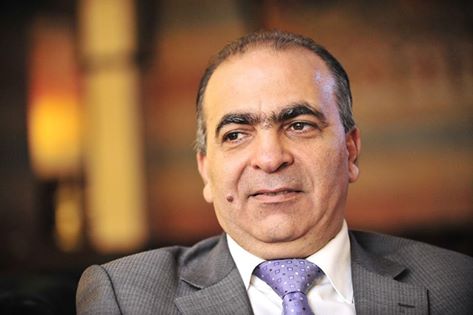Five years have passed since the issuance of the Geneva Communique on the political solution in Syria, and the Syrian crisis is growing more bloody and tragic. The Geneva negotiations process and the countries that are supposed to support the Communique are not making any progress on the road to a solution.
Since the Action Group on Syria issued its statement in June 2012, the volume of devastation in Syria's cities and infrastructure has doubled several times. Millions of Syrians have become refugees in camps in Lebanon, Jordan, Turkey, or have been internally displaced, all suffering from cold, hunger and thirst. The number of people who were killed in 2012 was in the tens of thousands; now having risen to nearly half a million today, while the number of disabled is estimated at 1 million. Meanwhile, hundreds of thousands of people still remain inside Assad’s prisons.
Many people today wonder about the usefulness of continuing the negotiation sessions, which the United Nations envoy, Staffan de Mistura, insists on holding several times a year, despite the successive failure to make any progress of any kind to ease the tragedy or give a glimmer of hope.
The opposition and the regime delegations that attend Geneva no longer have any say. Having become empty structures, both the regime and the opposition wield no power on the ground to accept or reject any solution unless it is agreed by their de facto forces. Syrian President Bashar al-Assad does not have the power to face Iran and Russia, and the regime's duty now is only to preserves their interests. The opposition delegation on the other hand cannot make the de facto armed forces accept any agreement that does not fit with the continuation of the advantages achieved by the faction leaders.
The stronger factions on the ground, such as Nusra Font and its allies in Hay'at Tahrir al-Sham, do not consider the Geneva delegation as representative for them in the first place. Instead, they have a political platform that considers all those who do not call for a religious state as apostate, and should be fought. The negotiators, like the rest of the opposition institutions, must serve the funders who pay their salaries, and are obliged to consult them in different directions before any agreement.
The U.N. secretary-general, the highest authority overseeing the Geneva process, should be aware of the developments of the past four years since the first Geneva conference. He must also understand that Mr. de Mistura has exhausted all his stock of ideas that can help the solution. The U.N. envoy may have become just a public servant who cares about his position and salary, rather than finding a solution to the tragedy described by international organizations as the bloodiest and costliest human and material disaster since World War II.
The meaningless game which Russia, Iran, Syria and the international public opinion are playing, pretending that one day the negotiations will work and create peace, has exhausted its purposes. The stakeholders are no longer capable of deceiving anyone. The continued adoption of this game by the United Nations will not benefit anyone except for those who have made fortunes of the continuous war.
All the good people in the world who truly wish to end the Syrian slaughter, foremost among them the Syrian political and cultural elite that still maintain its independence, are requested to publicly denounce this diversion and call for a practical solution that salvages stability and allows refugees to return to their homes.
It is an important step that must be taken before we are surprised by international-regional agreements that serve the interests of the occupying powers and neglect our interest and our right to a free, democratic, unified and prosperous nation.
This article was translated and edited by The Syrian Observer. Responsibility for the information and views set out in this article lies entirely with the author.


